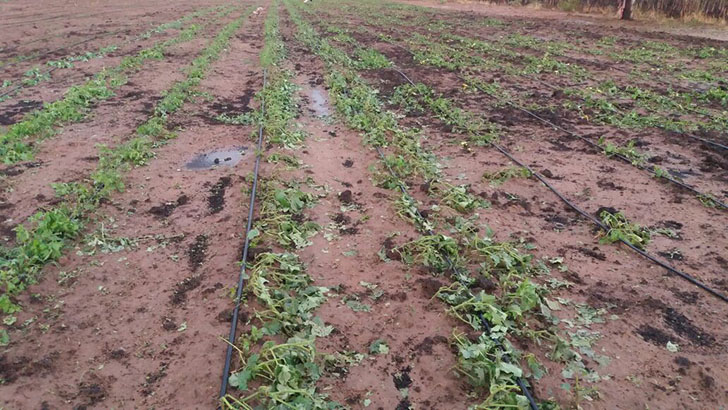Nqobile Bhebhe, Zimbabwe
The Zimbabwe government, under the New Dispensation tagline pledged to revive the agricultural sector, a linchpin of the nation’s economy that collapsed catastrophically after the land seizures.
In his inaugural address in November 2018, President Emmerson Mnangagwa placed the focus on agriculture as the mainstay of Zimbabwe’s economic recovery.
“Our economic policy will be predicated on our agriculture, which is the mainstay and will create conditions for investment-led economic recovery that puts a premium on job creation” he said.
However, that envisaged revival could be drawn back by reports that farmers who lose their crops or property to natural disasters and veld fires should not expect any form of compensation from Government.
Government officials say compensation is not its prerogative.
Agriculture minister Perrance Shiri told parliament that farmers are responsible for insurance cover to mitigate risks associated with harsh weather patterns.
“All farmers in Zimbabwe are responsible for the insurance of their properties against natural disasters” said Shiri as recorded by the parliamentary Hansard.
“The prerogative lies with the individual farmer. So, some farmers are insured and others are not insured. We do not normally look at the statistics or ask for them,”.
Farmers across the country have lost their crops due to prolonged dry spells experienced at the beginning of the 2017/2018 farming season.
Armyworm invasion also destroyed vast tracks of cropped land.
Agricultural experts have long called for a small-holder farmer insurance cover for crops.
However, most small scale farmers have not cushioned themselves from potential losses through insurance cover, due to insufficient resources and dishonesty by some insurance companies.
Farmers complain that contracting companies lie to them that the insurance is covered but fail to honour their side of the bargain in cases of fire and hailstorm, despite deducting the insurance fee.
They have lost confidence in insurance firms who take advantage of gullible communal farmers by not fully explaining the fine print to them.
In February this year, economist Tinashe Kaduwo said agriculture is a high-risk economic activity and investment in that sector without insurance is an added risk factor.
He said insurance can play an important role in securing farmers’ livelihoods and boosting the efficiency of the agricultural sector.
“Access to agricultural insurance remains low, which calls for proper government planning and support.
“Commendably, the government has been assisting agriculture through subsidies and input credit under the Command Agriculture programme. However, credit without insurance is an added risk factor which calls for strong government support in making insurance accessible to all farmers” he is quoted saying.
Kaduwo said considering the new dispensation’s focus on agriculture, agricultural insurance should be part of the country’s agricultural policy and any other government intervention in the agricultural sector.
Government should take the strategic lead for insurance especially for rural agricultural communities.
But pronouncements by Shiri could be interpreted as government dumping farmers.








